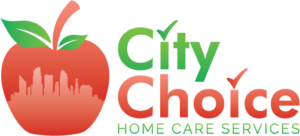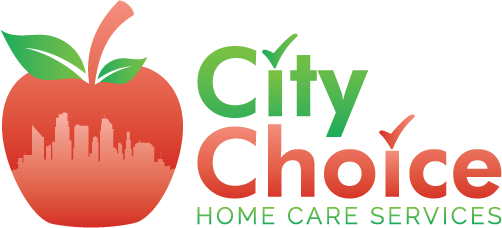The demand for home healthcare services has seen significant growth in demand over the past few years and all indications are that this demand is expected to continue on this upward trajectory. The increased demand is no doubt fuelling an increase in the number of new home health agencies and other service providers entering the market. The increasing number of players also means that people who need home healthcare services have an ever-increasing number of options to choose from.
This article serves as a guide to inform potential employers of home healthcare services about several important laws in New York that regulate the operations of these agencies, and how knowledge of these laws can sometimes help them hire the right agency for them, or at least prevent them from falling victim to scrupulous companies.
Why Knowledge of These Home Health Agency Regulations Are Helpful
Understanding the regulations surrounding home health care agencies is vital for several reasons. First, it ensures that you are entrusting your loved one’s care to a reputable and compliant agency. Being familiar with these regulations will also help you make an informed decision and choose an agency that meets the highest standards of care.
Additionally, staying aware of the regulations empowers you to advocate for your loved one’s rights and hold the agency accountable if necessary.
1. Home Health Agencies Must Have a License
One of the most critical regulations for home health agencies in New York is obtaining the appropriate licenses and certifications. These requirements ensure that the agency meets the necessary standards to provide home health care services.
To operate legally, a home health agency must obtain a valid license from the New York State Department of Health. This license confirms that the agency has met specific criteria related to staffing, training, and overall quality of care.
Moreover, Medicare and Medicaid certification is also crucial for home health agencies. Certification by these federal programs allows the agency to provide services to individuals covered by Medicare or Medicaid.
The certification also ensures that the agency adheres to the highest standards of care and is regularly reviewed for compliance.
2. Home Health Care Staff Should Be Trained and Qualified.
The qualifications and competencies of caregivers employed by home health agencies are essential for providing quality care.
In New York, there are specific regulations regarding the staffing and qualifications of caregivers. Home health agencies must ensure that their staff members are appropriately trained and qualified to provide the necessary care.
Caregivers employed by home health agencies should possess the necessary certifications and licenses, such as Certified Home Health Aide (CHHA) or Licensed Practical Nurse (LPN), depending on the level of care they provide.
Additionally, agencies must conduct thorough background checks on their caregivers to ensure the safety and well-being of their clients.
3. Patient Assessment and Care Planning
In New York, home health agencies are required to conduct comprehensive assessments of their clients’ needs and develop a personalized care plan accordingly. This regulation ensures that the care provided is tailored to each individual’s specific requirements and promotes their overall well-being.
During the assessment process, agencies must evaluate various aspects, including the client’s medical condition, social support system, and home environment.
Based on the patient’s assessment, a care plan is developed, outlining the specific services required, the frequency of visits, and the goals to be achieved.
Regular reassessments are also necessary to ensure that the care plan remains effective and meets the changing needs of the client.
4. Quality and Safety Standards
Ensuring quality and safety in home health care is paramount. Home health agencies must adhere to specific quality and safety standards to maintain their license and certification. These standards cover various aspects like infection control, medication management, and emergency preparedness.
Agencies must have policies and procedures in place to address these areas and ensure that their staff members are trained accordingly.
Regular inspections and audits are conducted to assess compliance with these standards.
By choosing a home health agency that meets this requirement, you can have peace of mind knowing that your loved one will receive care in a safe and secure environment.
5: Billing and Reimbursement Regulations
Understanding the billing and reimbursement regulations is crucial to avoid any unexpected financial burdens.
Home health agencies in New York must comply with specific billing and reimbursement guidelines set by the New York State Department of Health. These regulations ensure that services are billed accurately and that clients are not overcharged.
Before hiring an agency, it is essential to discuss the payment terms and billing procedures with them. Ensure that you understand the coverage provided by your insurance and are aware of any potential out-of-pocket expenses.
Transparency in billing practices is a sign of a reputable agency that prioritizes the well-being of its clients.
How to Ensure Compliance with Home Health Care Regulations in New York
To ensure compliance with home health care regulations in New York, there are a few steps you can take.
First, research and gather information about the current regulations governing home health agencies. The New York State Department of Health website is an excellent resource for this purpose.
Secondly, when considering a home health agency, ask for their license and certification information. A reputable agency will be transparent and willingly provide this information. You can also inquire about their staff qualifications, training programs, and quality assurance measures.
Next, look for agencies that have a solid track record of providing quality care and have a good standing with the relevant regulatory bodies.
It is also important to personally meet with representatives from the agency and discuss your loved one’s specific needs and expectations. This will allow you to assess their professionalism, knowledge, and commitment to providing exceptional care.
Additionally, ask for references from other clients who have used their services. Speaking to these individuals will give you valuable insights into the agency’s performance, reliability, and overall satisfaction of their clients.
Lastly, read any online reviews and testimonials from other clients that you can find online, who have used the services of the agency. This will give you an idea of their reputation and the quality of care they provide.
Conducting thorough research and due diligence will help you choose a home health agency that is compliant with the regulations and will provide exceptional care for your loved one.
Conclusion
Before hiring a home health agency in New York, it is very helpful to be informed of some key regulations that govern these agencies.
By understanding the licensing and certification requirements, staffing qualifications, patient assessment, and care planning process, quality and safety standards, and billing and reimbursement regulations, you can make an informed decision and choose a reputable and compliant agency.
Remember to conduct thorough research, ask the right questions, and seek references to ensure that the agency you choose will provide the highest standard of care for your loved one.
Prioritizing compliance and quality will give you peace of mind knowing that your loved one is in good hands with a home health agency that meets the regulations in New York.



